- The following arrangements are delegated to the centre. There is no need to make an application for external approval:
- The use of audiological equipment (including FM systems) and desktop, laptop and tablet computers
- The use of a Communication Professional
- Live voice in place of recordings
- Candidate reading aloud
- The use of an examination reading pen.
- Modified language papers in which the language has been modified to ensure access to children with HI and/or language difficulties are produced by most Awarding Organisations as a matter of course.
- For a candidate with a documented hearing impairment it should not be necessary to provide evidence of their reading speed and comprehension when applying to use a reader or computer reader.
Hearing impairment
This activity looks at access arrangements as they are related to candidates with hearing impairment.
This is not an exhaustive list and any candidate with a disability is entitled to have his/her needs addressed on an individual basis.
Select the headings to see more detail about the arrangements.
Rationale
Some candidates may find the amount of reading, writing and processing involved in a timed examination very tiring. In some cases, it may be appropriate to allow them supervised rest breaks.
Description
The timing of the examination should be paused and re-started when the candidate is ready to continue.
The candidate must continue to be supervised during the rest break.
Any time taken for a rest break should be added to the end of the exam, so that candidates are not disadvantaged.
During the rest break the candidate must not have access to the question paper or answer booklet.

Constraints
There is no maximum time set for supervised rest breaks.
Evidence
Identify the candidate's established difficulties.
Confirm that supervised rest breaks reflect his/her normal way of working within the centre.
Considerations
A rest break is not the same as extra time because the candidate cannot use this time to answer questions. In some cases, a combination of extra time (refer to 'Extra time' arrangement) and rest breaks may be appropriate.
The decision must be made by the SENCo based on knowledge of the candidate's needs and normal way of working when placed under timed conditions.
The duration of the supervised rest break should be determined by the SENCo before the start of the examination series.
Process
This arrangement is delegated to the centre; there is no need to make an application for external approval.
JCQ guidance
Refer to the
Rationale
Many candidates with a sensory impairment will need extra time to complete an examination. This is because sensory impairment commonly affects an individual's speed of information processing and linguistic access, which may be unrelated to their cognitive ability. For example, it may take a candidate longer to read the text or to have it read to them.
Description
The candidate is given 25% extra time.
Constraints
There may be some tests or examinations where extra time is not allowed because completing a task in a set time is one of the skills being assessed.
Evidence
The SENCo must paint a picture of the candidate's normal way of working, clearly demonstrating the need for extra time.
An assessment of needs based on:
- Statement or EHC
- Advice from a specialist qualified Teacher of the Deaf
- JCQ Form 8 (where there are other needs)
Considerations
Before requesting extra time, the use of supervised rest breaks should be considered.
If the candidate needs extra time due to the use of a reader or scribe you should also refer to those sections.
The arrangement must not suddenly be granted to the candidate at the time of his/her examinations having not previously been used.
Process
An application must be submitted using AAO.
It may be automatically approved.
JCQ guidance
Refer to the
Rationale
Many candidates with a sensory impairment will need extra time to complete an examination. This is because sensory impairments commonly affects an individual's speed of information processing and linguistic access, which may be unrelated to their cognitive ability. For example, it may take a candidate longer to read the text or to have it read to them.
Hearing impairment
Hearing impairment may have had an impact on the candidate's memory which again would necessitate extra time. Extra time may also be required if a candidate is making use of other access arrangements such as a Live Speaker in MFL, a Communication Professional or an LM.
Description
The candidate is given extra time.
The amount of extra time requested should be based on evidence of the candidate's normal way of working using the access arrangements e.g. in mock examinations and regular assessments. Extra time typically varies from around 25-50% of the time allowed for the standard paper; more might be allowed if sufficient evidence of need is presented.
For example, for a candidate proficient in reading braille and using a braille paper it would normally be appropriate to award no more than 50% extra time
Constraints
There may be some tests or examinations where extra time is not allowed because completing a task in a set time is one of the skills being assessed.
Evidence
Confirm the candidate's disability.
Provide evidence of how the amount of extra time required has been determined.
Show the involvement of teaching staff in determining the need for extra time.
Confirm that without the application of extra time the candidate would be at a substantial disadvantage.
Considerations
There needs to be strong justification for why more than the 25% extra time adjustment is needed.
Although extra time between 26% and 50%, and over 50%, are considered 'exceptional arrangements' they are not atypical for candidates with substantial sensory impairment.
Process
An application must be submitted using AAO.
It will be automatically rejected.
The centre should then refer the application to the relevant awarding body.
JCQ guidance
Extra time up to 50%
Refer to the
Extra time over 50%
Refer to the
Rationale
The candidate uses equipment in his/her normal day-to-day studies and without it would be at a substantial disadvantage when compared with other non-disabled candidates undertaking the assessment.
Description
The candidate is allowed to use technology if it is his/her normal way of working.
This includes all audiological equipment including FM systems and desktop, laptop and tablet computers.
Constraints
Depending on the skills being assessed it may be necessary to turn off some specialist functions on ICT devices, such as spellcheckers and grammar check facility/predictive text.
Evidence
Confirm that the candidate has a substantial and long term impairment (within the meaning of the Equality Act) which has an adverse effect.
Confirm that the arrangement is the candidate's normal way of working within the centre
Considerations
For computer readers refer to the section below.
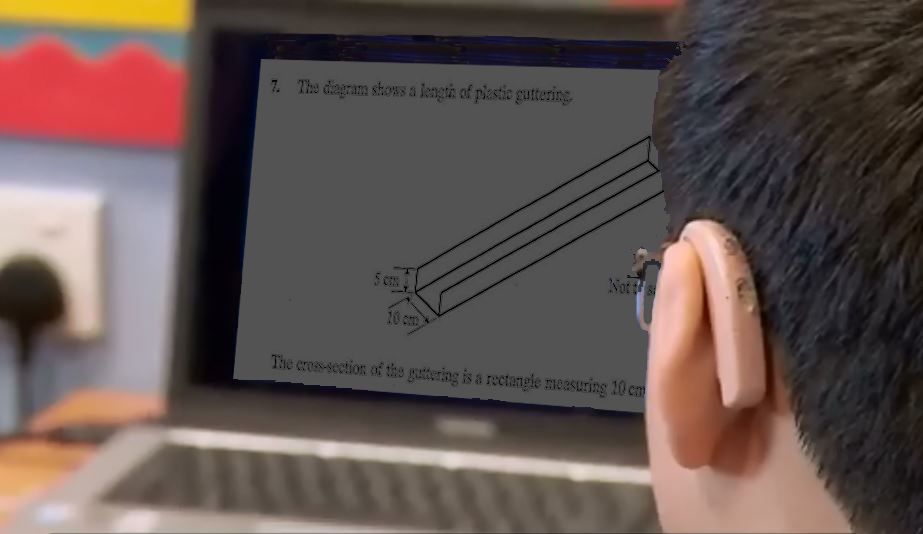
Process
This arrangement is delegated to the centre; there is no need to make an application for external approval.
JCQ guidance
Word processors
Refer to the
Other technology
Refer to the
Modified language papers in which the language has been modified by language specialists to ensure access to children with HI and/or language difficulties are produced by most Awarding Organisations as a matter of course. This certainly applies to the core subjects.
Modified papers for less common subjects need to be applied for in good time according to the guidance and deadlines provided by JCQ and those of individual Awarding Organisations.
Unlike the other awarding bodies, AQA maintains that all standard papers are checked for accessible language according to the guidelines published by BATOD (British Association of Teachers of the Deaf) but BATOD Language Modifiers are not routinely involved in the process.
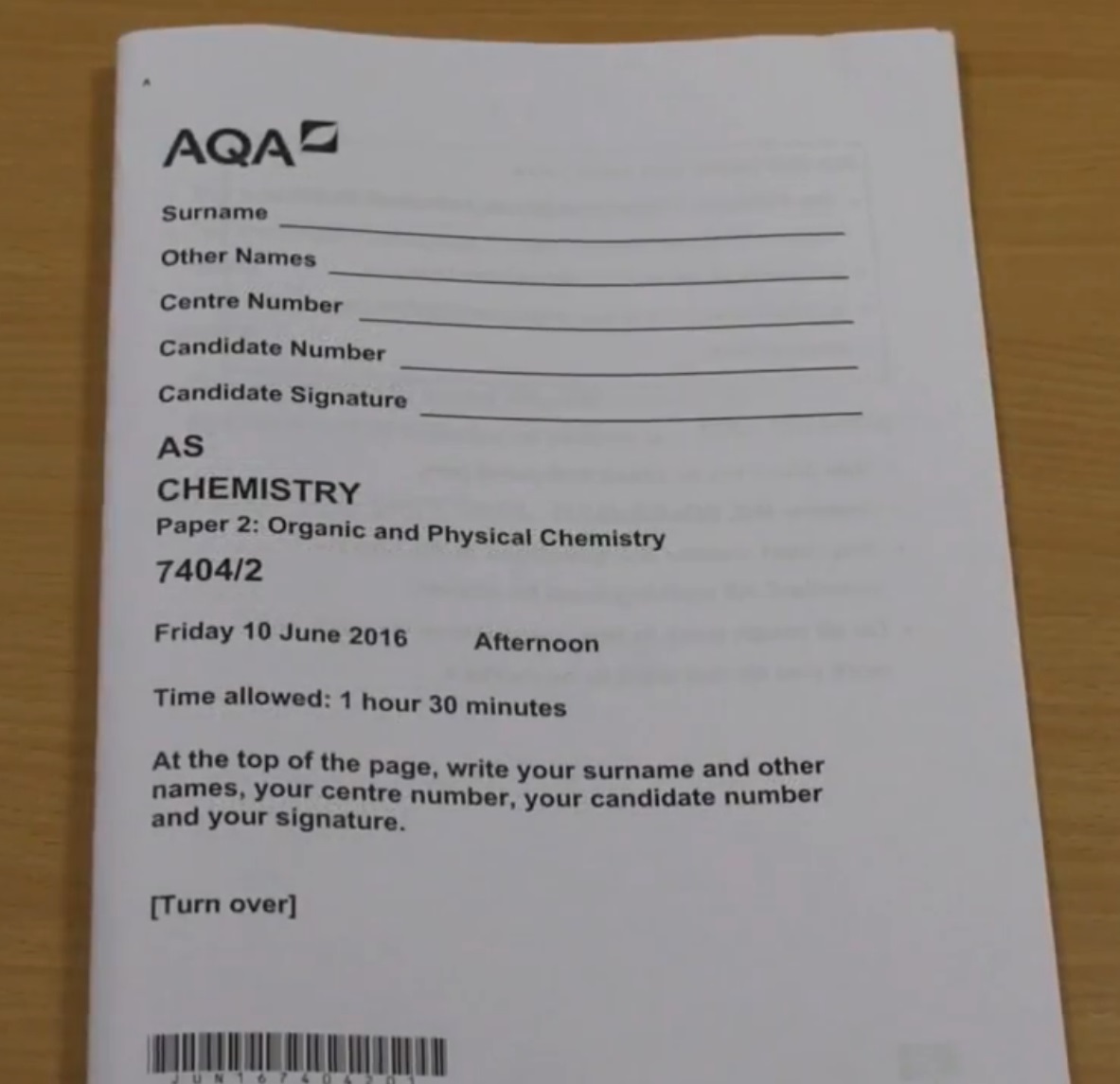
Recent change to role name
Oral Language Modifiers have been renamed as Language Modifiers because colleagues delivering this arrangement are allowed to use elements of BSL, SSE and Cued Speech.
It will be important not to confuse them with Language Modifiers producing modified papers. BATOD proposes to refer to these colleagues as BATOD Language Modifiers.
Rationale
Some candidates need someone to clarify the carrier language in a written paper.
Description
A Language Modifier is a responsible adult who may clarify the carrier language used in the examination paper when requested to do so by a candidate.
Approval of an LM also allows up to 50% extra time.
Constraints
A Language Modifier may not be used in a paper testing reading.
The Language Modifier must not explain technical terms or subject-specific terms. The ability to understand these terms is part of the assessment.
The invigilation arrangements are very strict also:
- A separate Language Modifier and invigilator must be available for each candidate. The invigilator must listen carefully and observe the conduct of the Language Modifier throughout the duration of the examination. The invigilator must countersign the cover sheet ensuring that it accurately reflects the actions of the Language Modifier during the examination.
- Language Modifiers may open the paper one hour before the exam to prepare themselves but can only provide language modification when requested to do so by the candidate. It cannot be offered unsolicited.
- Modified papers must be ordered if an LM is to be used.
- A Language Modifier may also act as a Reader.
- An approved application for a Language Modifier will allow the centre to grant the candidate up to a maximum of 50% extra time in a paper (or a section of a paper) testing reading which cannot of course be modified by an LM.
- And as in other cases it must also represent the normal way of working.
Evidence
Must be able to demonstrate that the candidate has a disability that causes a very substantial and long term adverse effect resulting in very persistent and significant difficulties in accessing and processing information
To qualify for a Language Modifier who is able to clarify carrier language and the rubric of examinations, a candidate must have a standardised score of 69 or less (a very substantially below average standardised score) in relation to reading comprehension and/or vocabulary.
The candidate will have been assessed by a specialist who will have conducted an appropriate up to date test within 26 months of the final examination.
Accredited training courses for Language Modifiers are run throughout the year and the JCQ document says that Language Modifiers 'should' have undertaken this training. It does not say 'must' but it would be useful for any potential Language Modifier to attend this training to have an updated understanding of the theory and practice of the role. Teachers of the Deaf are permitted to undertake these assessments without undergoing the accredited training.
Considerations
A Language Modifier is an adjustment of last resort so an application must only be made once all other relevant access arrangements have been considered and found to be unsuitable or unworkable. In particular, prior to requesting a Language Modifier, consider the use of a modified language paper.
A separate application for a reader is not required.
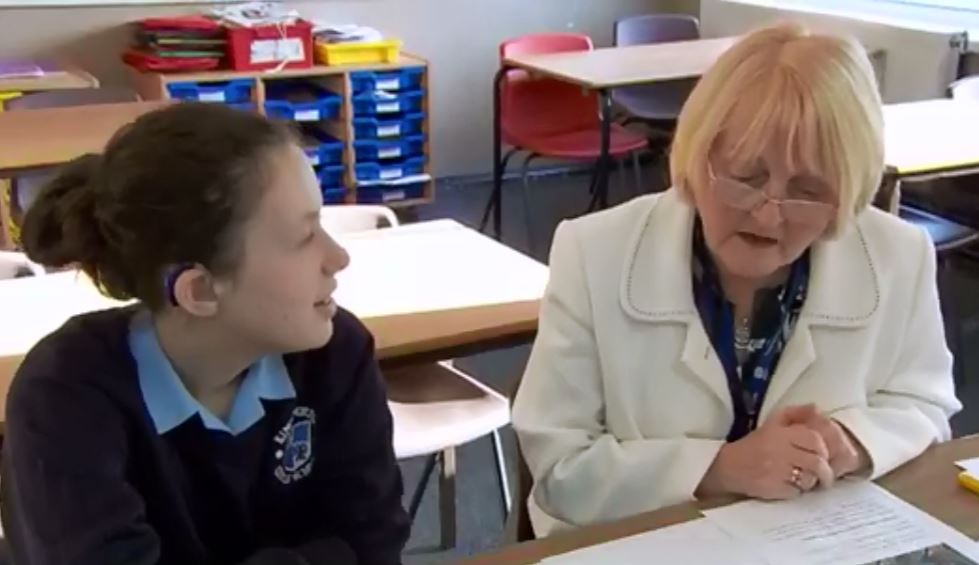
Process
An application must be submitted using AAO. It will be automatically rejected (there is no option for an LM in the AAO, select 'other') and the centre should refer the application to the relevant awarding body.
JCQ guidance
Refer to the
'Communication Professionals' were previously known as 'Sign Language Interpreters'.
Rationale
Centres are allowed to provide a Communication Professional to a candidate where it is their normal way of working within the centre.
Description
The role of a Communication Professional is to present the questions in a different language.
The interpreter should mark on the cover sheet all parts of the examination paper which were interpreted.
Constraints
The Communication Professional must not:
- change the meaning
- provide any additional information
- provide an explanation as to what the question requires of the candidate.
Evidence
This can be requested for a candidate who uses BSL in his or her education. No evidence has to be provided for this to be granted.
Considerations
Care
Sign language interpretation cannot be checked by the awarding body for accuracy. Great care must be taken not to disadvantage or advantage the candidate.
Video
JCQ guidance states that centres should video the signing of the Communication Professional to demonstrate accuracy.
It is noted that the term ‘should’ is used rather than ‘must’. JCQ strongly desires that videoing takes place but accepts that this may currently cause practical difficulties so it is not yet compulsory. They intend to change it to 'must' in due course.
Proficiency
A statement regarding the proficiency of the Communciation Professional is provided in the
Following serious concerns expressed by colleagues that some of their Communication Professionals did not have level 3 in BSL even though they are operating at that level or higher it was agreed that centres could approach JCQ to explain that fact.
As a result of the concern expressed, the wording in the 2019-2020 regulations, which still remain in force, is as follows:
The Communication Professional must be proficient in the use of the candidate’s sign language, ideally being qualified to a minimum of BSL/ISL at Level 3 (and aspiring towards Level 6). The Communication Professional must be at an appropriate level for the examination. It is advisable that the Communication Professional should also be a qualified Language Modifier. The Communication Professional must be familiar to the candidate and must always work at the candidate’s pace.
Section 5.13.4 Adjustments for candidates with disabilities and learning difficulties, JCQ
Candidate response
Usually, it is not possible for the candidate to reply to the questions in BSL, although individual words can be used and written down. However, if a case can be made that a specific individual's needs require this and the practical implications can be addressed by recording and transcribing the candidate's responses, it can be allowed in discussion with the Awarding Organisation.
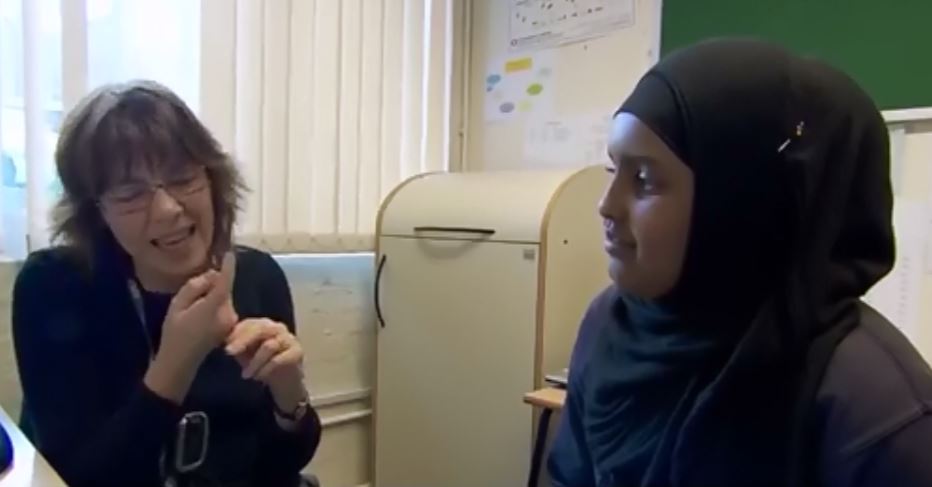
Process
This arrangement is delegated to the centre; there is no need to make an application for external approval.
JCQ guidance
Refer to the
Rationale
Some examinations include pre-recorded components, for example MFL listening examinations. hearing-impaired candidates may have difficulty hearing a recorded conversation.
Description
A recorded conversation may be replaced by a live voice.
If several voices are used in the stimulus material more than one person can be employed.
Initial letters of words may be written or finger spelt.
Constraints
The transcript must be ordered in advance.
The live speaker should be given access to the recorded material and/or transcripts an hour before the examination.
Evidence
Confirmation that the candidate has persistent and significant difficulties in following speech at normal speed.
Considerations
The centre must consult a specialist teacher, i.e. a qualified Teacher of the Deaf, to identify the most appropriate arrangement for a candidate with hearing loss.
The live speaker should, wherever possible, be the candidate's subject or specialist teacher.
Repetition may be necessary so the use of extra time should be considered. Extra time would need to be requested and approved.

Process
This arrangement is delegated to the centre; there is no need to make an application for external approval.
JCQ guidance
Live speakers
Refer to the
Transcripts
Refer to the
Rationale
Access arrangements for a candidate for music examinations are highly individual and so are usually discussed with the Awarding Organisation.
Description
Arrangements can include alternatives to a listening test, exemptions, extra time and in some cases repetition of stimulus material.
Constraints
Extra time is not normally granted where timing is part of then assessment objective
Decoding of notation or symbols by a reader or other means is not permitted
A practical assistant is not normally permitted.
Process
An application must be submitted using AAO using the arrangement 'other'. It will be automatically rejected and the centre should then refer the application to the relevant awarding body.
Rationale
Candidates who are unable to read quickly enough in an exam context as a result of linguistic delay caused by their hearing impairment may need the support of a reader.
Description
The reader may be in the form of a human reader or a computer reader. The arrangement should reflect the candidate's normal way of working.
The reader is permitted to read the text or questions.
Constraints
The reader must not explain or clarify the questions or text, or advise on timing or the choice or order of questions.
Readers are not usually allowed in sections of papers which are testing reading, as candidates cannot be granted marks for a skill that they are unable to demonstrate.
A reader is not approved if the difficulty is related to the candidate's first language not being that used in the examination.
From September 2020 the following new arrangement relating to readers has also been introduced:
Readers may decode symbols and unit abbreviations in Maths and Science examinations for candidates who require this arrangement in order to access the assessment and where it reflects the candidate’s current and normal way of working within the centre.
Access Arrangements and reasonable adjustments
Evidence
For a candidate with a hearing impairment it should not be necessary to provide evidence of their reading speed and comprehension when applying for this arrangement. Evidence of the impairment should be documented.
The arrangement, whether for a reader or a computer reader, must reflect the candidate's normal way of working in internal school tests and mock examinations.
Considerations
Where an application for a computer reader is approved, it is strongly recommended that the centre orders a non-interactive electronic question paper.
A Language Modifier may be more suitable to assist in clarifying complex language.
A candidate who uses a reader must be accommodated separately within the centre.
Process
An application must be submitted using AAO. It may be automatically approved.
JCQ guidance
Refer to the
Rationale
It can make a significant difference to a candidate who persistently struggles to understand what they have read, but who does not qualify for a reader, to read aloud. Where candidates are reading difficult text they may work more effectively if they can hear themselves read.
Description
This may be in the form of the candidate being permitted to read aloud or use an examination reading pen. The arrangement should reflect the candidate's normal way of working.
The reader is permitted to read the text or questions.
Constraints
Examination reading pens must not have an in-built dictionary or thesaurus.
Evidence
For a candidate with a hearing impairment it should not be necessary to provide evidence of their reading speed and comprehension when applying for this arrangement. Evidence of the impact of the hearing impairment should be documented in case of inspection.
The arrangement, whether for an examination pen or the candidate reading aloud, must reflect the candidate's normal way of working in internal school tests and mock examinations.
Considerations
A candidate who reads aloud to himself/herself must be accommodated separately within the centre.
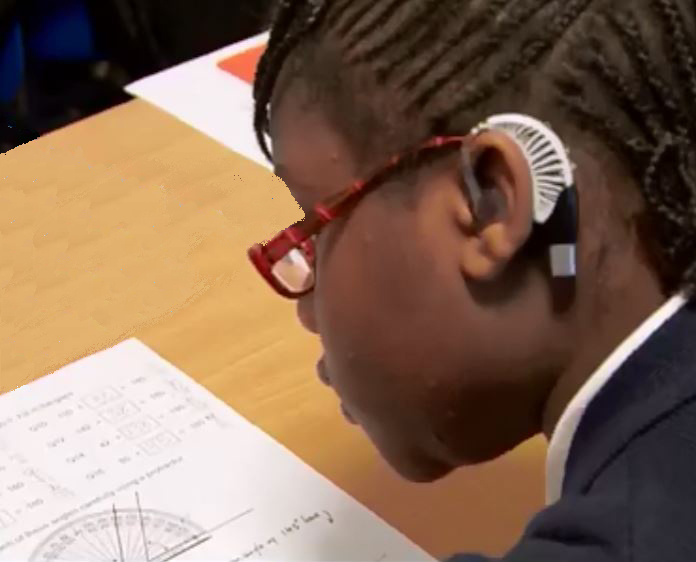
Process
This arrangement is delegated to the centre; there is no need to make an application for external approval.
JCQ guidance
Refer to the
Rationale
A candidate with an impairment who is unable to write or type independently or at sufficient speed may benefit from dictating his or her answers to a scribe
Scribes are not generally appropriate or widely used for HI candidates unless it arises from reasons other than their HI.
A small number of candidates have been permitted to respond in British Sign Language and their responses scribed in English, but this is not commonly accepted, and would be likely to require a video transcript in addition should it be permitted. Separate discussion with the Awarding Organisation would be necessary.
Description
The candidate dictates his or her answers to a scribe, who will write (or word process) word-for-word as the candidate dictates.
Constraints
A scribe should only be used where the candidate is not competent in using a word processor themselves.
Evidence
The SENCo must demonstrate that the candidate has an impairment which has a substantial and long term adverse effect on his/her writing and that using a scribe is the candidate's normal way of working.
Show the involvement of teaching staff in determining the need for a scribe.
Confirm that without the use of a scribe the candidate would be at a substantial disadvantage.
Considerations
Where a candidate dictates answers to a recording, the answers must subsequently be scribed.
A scribe is not a reader, prompter or practical assistant. Those arrangements should be requested additionally if needed.

Process
An application must be submitted using AAO. It may be automatically approved.
JCQ guidance
Application
Refer to the
Evidence of need
Refer to the
Note for SENCOs and Examinations Officers about Teachers of the Deaf being specialist assessors
Teachers of the Deaf (ToDs) do not need to be access arrangement assessors at all, so the requirement to have undergone 100 hours of post-graduate study in assessment mentioned in the JCQ document is not relevant. For all access arrangements for deaf candidates (except LMs) there is no requirement for a specialist assessor to be involved. Deaf children fall into the category of candidates with complex needs and just have to satisfy the five conditions in the guidance eg (the same wording is used throughout the document to refer to eg scribes, readers etc). This, alongside evidence of the disability (eg an EHCP, statement from a ToD or consultant) is all that is needed as evidence for most arrangements.
In the case of LMs, the document specifically states that a ToD may carry out assessments of reading comprehension or vocabulary —
Therefore ToDs need have no concerns at all about having to become an access arrangement assessor to support the application for a reader, extra time or any other arrangement other than an LM and for that being a ToD suffices.
Rationale
A hearing-impaired candidate may have persistent and significant difficulty with memory of spoken language.
Description
Specific access arrangements for the spoken language endorsement element of GCSE English Language can be found in a document written by the Inter-board Working Group for GCSE English Language, and published on the BATOD website. This link requires membership access.